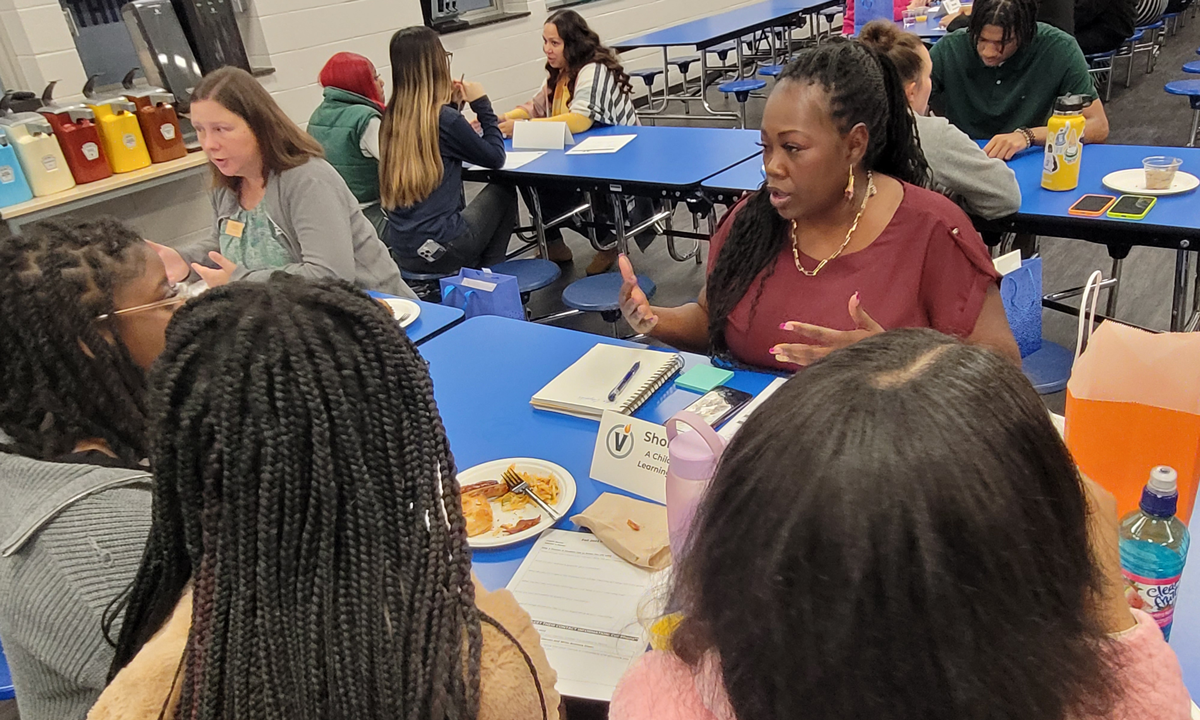Indiana Seeks to ‘Transform’ High School, Making Work Skills a Priority
Spending more time at internships, apprenticeships and workplace learning could soon be a “game changer” for students and businesses.

Get stories like this delivered straight to your inbox. Sign up for The 74 Newsletter
Indiana legislators and education officials are rallying behind a move to “transform” the state’s high schools by making career skills a major focus through more internships, apprenticeships and a drive to earn career credentials before graduating.
Repeatedly citing research from Georgetown University showing almost all new jobs require more than a high school diploma, the state legislature ordered Indianapolis education officials to rethink the mission of high schools.
Current graduation requirements will be thrown out next year and new ones calling for more career preparation will take their place.
“Are the four years of high school as valuable as possible for students?” state education secretary Katie Jenner asked in an interview with The 74. “I’ve yet to meet a person who said, ‘Yes, they are.’ Most people say … if high school looked different for students, then we could better connect them to what’s what’s next.”
“If that’s the case, then what barriers do we need to get out of the way?” she continued. “How can we transform it in order to make it better for students.”
Jenner said having students spend time in workplaces to see what careers fit them, or earning career credentials, will help both students and businesses.
“That’s really what we’re trying to think through in Indiana, to not only better support Indiana students, but to also be mindful of Indiana’s talent pipeline,” Jenner said.
Republican State Rep. Chuck Goodrich, who helped lead the charge earlier this year to create a key piece of the new focus — $5,000 Career Scholarship Accounts that sophomores, juniors and seniors can use for career training — said students need better opportunities to gain skills.
“Giving students hands-on applied learning opportunities and the ability to earn a credential before graduation is a game changer, not only for the student, not only for the family, but for Indiana,” Goodrich told the state Senate this spring.
Indiana already has a requirement students show “demonstrable employability skills” to graduate from high school, but it currently counts playing on a school team, other extracurricular activities, community service, an after-school job or a capstone research project the same as doing an internship or apprenticeship.
The new requirements will be more work and skills-focused.
The Career Scholarship Accounts are an early piece of the overhaul the legislature passed this spring in House Bill 1002. The bill contains another immediate change — requiring schools to teach students more this upcoming academic year about career planning, available training programs, scholarships, and different jobs available, “with an emphasis on high wage, high demand industry,” according to the new law.
Major parts of the overhaul, particularly which career preparation steps should be required to graduate and which just encouraged, are still to be determined.
The Indiana education department is holding focus groups with parents, educators and businesses about how to shape the new vision and should have proposals for the state board to discuss early next year. New graduation requirements will be set by the end of 2024, Jenner said, to kick in for the class of 2029.
Among the key items being discussed:
- A greater emphasis on students’ job shadowing, internships and apprenticeships that only “a tiny percentage” of students experience now, according to Jenner.
- Changing the courses required to graduate.
- Requiring more meeting time with career counselors or businesses
- Requiring students to earn credentials for careers before graduating.
- Piloting “mastery” approaches to measuring student progress, throwing out traditional A-F grades, replacing them with tracking student progress toward their mastery or competency of skills. Workplace skills like teamwork and critical thinking would be measured, not just core subjects like English and math.
The efforts are attracting some national attention. Patricia Levesque, CEO of the Excellence In Education Foundation, visited Indianapolis this fall to praise the state for being a national leader in preparing students for careers, not just college.
Though Indiana is better than other states in helping students earn credentials, she warned too many students are being guided to many credentials businesses aren’t seeking.
“Nearly 60 to 70 percent of the credentials earned by high school students that year had no value,” she said of Indiana. “No company was asking for those credentials, right? Students were earning something that didn’t have currency in the marketplace.”
Some legislators say they are concerned the overhaul is more an attempt to help businesses find employees than help students.
“This rethinking, reimagining of high school is our attempt at filling these jobs to me,” said Democratic State Sen. Shelli Yoder before voting against House Bill 1002. “We’re doing a disservice for students. And that’s not to say we don’t need to reimagine it … It’s going to help the workforce. But is it helping students?”
Schools, like Victory College Prep high school in Indianapolis, are already on board with the main idea of the change. That school has placed every 11th and 12th grader in internships with companies or nonprofits for 10 school days a year the last five years, other than some pandemic adjustments.
“We really believe here that graduation is not the end goal for our students,” said Rahul Jyoti, the school’s chief readiness officer. “We don’t want them to celebrate and say, ‘Hey, I graduated. This is great’. Because then real life hits you, especially for a lot of our students that come from the underserved communities, here in Indianapolis, and so really, this is the starting point.”
Jyoti said his school has been able to find 25 and 40 employers a year to host students, but wonders what will happen if every school in the state tries to find similar opportunities for every student.
Jenner said connecting with enough employers willing to take on the work of running internships or apprenticeships will be a challenge.
“One of the threats is that we transform the high school diploma and…readiness for Work Based Learning … and there aren’t there aren’t enough spots for kids,” she said.
Solving that issue is a big part of her work this fall and was a key reason the state sent delegations to Switzerland, where school and business cooperation on apprenticeships is a part of the culture. She said work based learning experiences may need to be different for different industries and may have to evolve over time, but the state has to start somewhere.
“We’re getting after it because we have to and we must for kids,” she said. “We’re going to learn some lessons along the way and we’re gonna keep getting better from there. But we can’t wait to get started. We have to go. We have to try some things.”
Get stories like these delivered straight to your inbox. Sign up for The 74 Newsletter

;)
